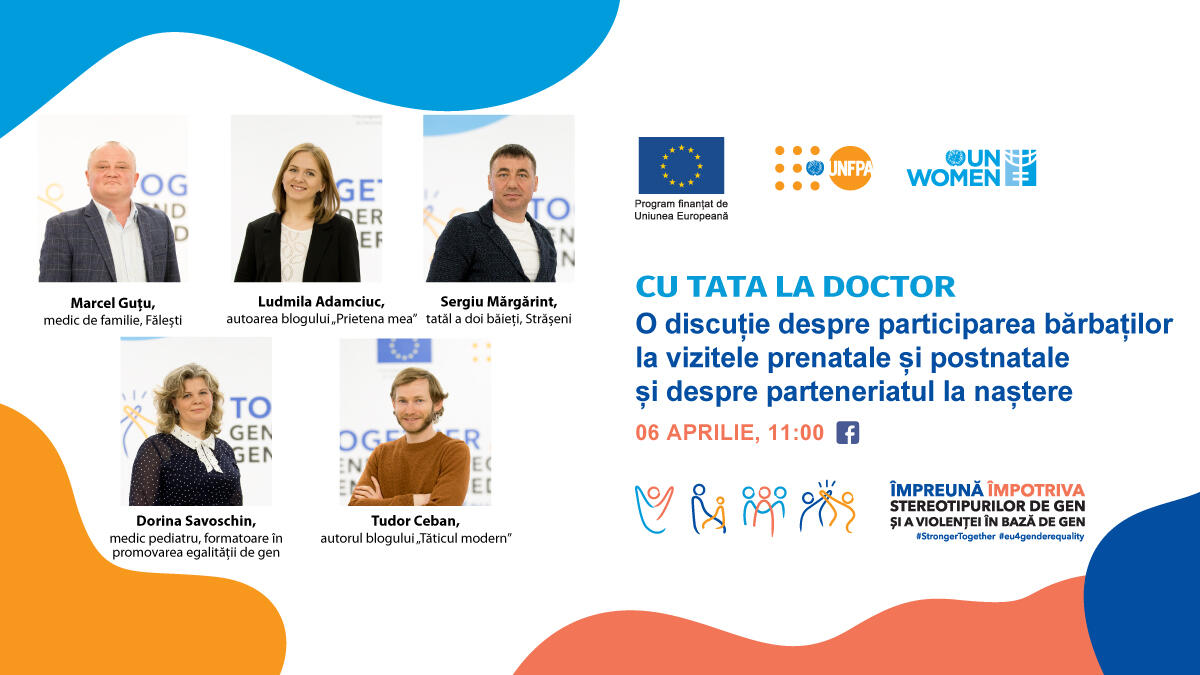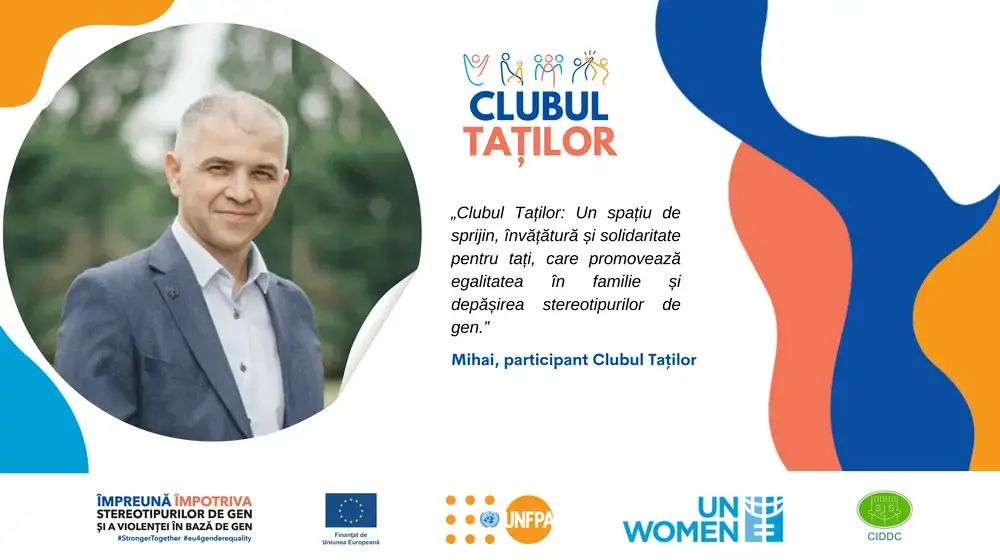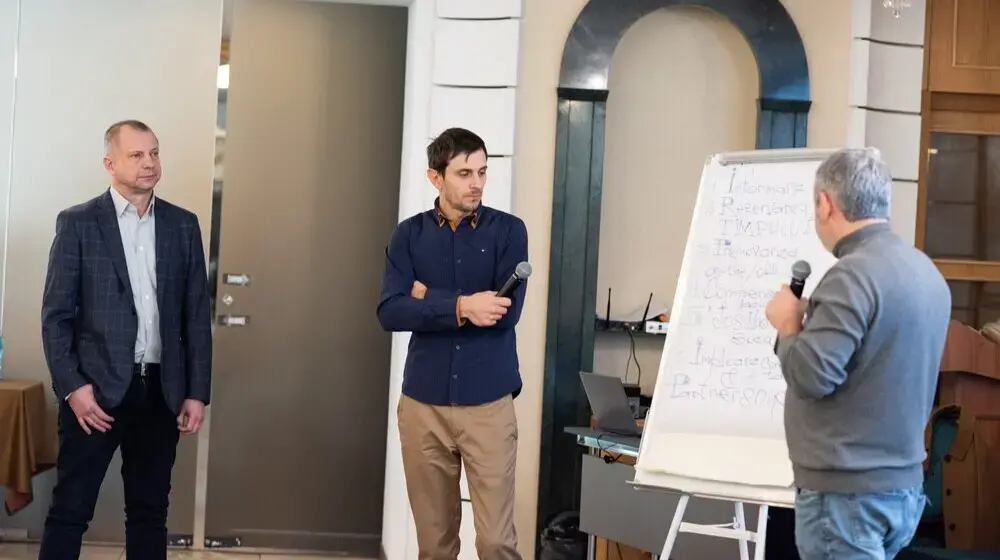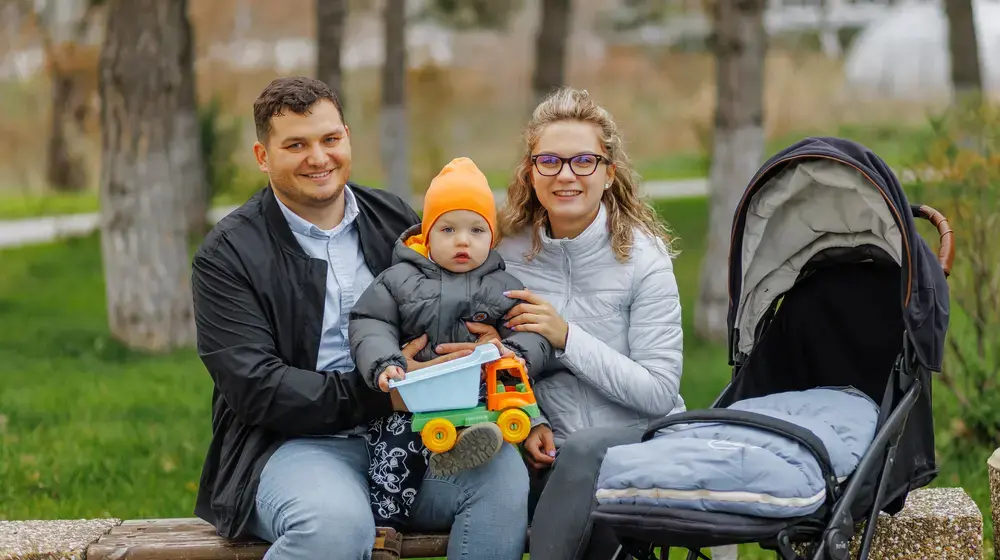‘My guide through pregnancy’ – that's what Ludmila calls her husband Ghenadie, when she talks about his involvement in child planning and raising their daughter, Beatricia. Ludmila Adamciuc is the author of the blog ‘My Friend’, and together with Ghenadie Borcan have a little girl diagnosed with Down syndrome. Both are equally involved in her upbringing, Ghenadie being present in Beatrice's life together with all the routine checks from the moment she was conceived to the present day.
‘My husband was my personal guide throughout my pregnancy. He was always there for me and knew all about our baby before she was born. The fact that we were together at the ultrasound exam where we learned our daughter's diagnosis, helped us get through this emotion with less of a shock,’ confessed Ludmila.
On the eve of World Health Day, Ludmila recounted her story in a discussion with mothers, fathers and doctors about the involvement of men in prenatal and postnatal care, and as partners at birth. ‘My father and I at the doctor's office’ event was organized by the United Nations Population Fund (UNFPA) under ‘Together against Gender Stereotypes and Gender-Based Violence’ Regional Project, funded by the European Union and implemented by UN Women and UNFPA Moldova.
Tudor Ceban is a ‘Modern Dad’ who in his blog, of the same name, promotes active fatherhood and early involvement of the father in raising and educating children, right from the moment of their planning. Tudor chose to be there for his partner in the delivery room and for his children every day. Together they devised a plan for birthing, raising and educating their children, which they strictly followed, with Tudor being the one who chose to stay on childcare leave.
‘I decided that I would be an engaged father long before our children’s conception, because I wanted a strong connection with both my wife and my boys,’ shared Tudor Ceban during the discussion.
Sergiu Margarint from Straseni, a father of two boys, attended the ‘My father and I at the doctor's office’ event too. Sergiu was with his wife throughout the pregnancy and after, at all child’s routine checks. He knows what sinusitis means and what his child is allergic to, and when asked if he has medical education since he knows every diagnosis in detail, he simply answers: ‘I am not a doctor. I am a FATHER’.
‘Because of gender stereotypes, many men limit their involvement in the family only to the role of breadwinner. But it's also important that they pay attention to their role as an engaged father and partner,’ said Sergiu.
The stories of Ludmila, Tudor and Sergiu are important and worth to be heard, especially since all maternity hospitals in Moldova offer conditions for birth partners and encourage fathers to be with their wives and their newborn children.
Dorina Savoschin, a pediatrician and gender equality trainer, explains the small number of fathers who come with children to the doctor by the fact that until recently only the mother was regarded by the doctor as the child's primary carer. This is despite the fact that healthcare is the first door through which fathers can make their way into their children's lives and equally share childcare responsibilities with the mothers.
‘A father has the same rights, and doctors must see in fathers reliable allies and encourage their involvement in raising children,’ said Dorina Savoschin.
A 2017 report by UNFPA in Moldova shows that only 18% of future fathers attend the birth of their child. The same report shows that only 23% of men accompany their partner to the doctor throughout their pregnancy. Another study on men and gender equality, conducted in 2016, says that only 1/3 of Moldovan men agree to stay with their sick child at home, due to the belief that mother is the one mainly responsible for child's health.
Based on these data, UNFPA Moldova and the European Union, with the support of the Child Rights Information and Documentation Center, initiated a series of trainings for health care providers in Straseni and Falesti in order to enable them to encourage men’s participation in prenatal and postnatal care and in the equal distribution of house chores.
In total, 78 family doctors and 215 nurses from both districts are going participate in the training sessions. The activity is part of ‘Together Against Gender Stereotypes and Gender-Based Violence’ Regional Program, funded by the European Union and implemented by UN Women and UNFPA.
This article was produced as part of ‘Together Against Gender Stereotypes and Gender-Based Violence’ Program, funded by the European Union and implemented by UN Women and UNFPA Moldova. This Program supports gender equality, addresses perceptions about the roles of men and women in the family and in the society, and is meant to contribute to eliminating gender-based violence.
Contact data for the media:
Ludmila Bogheanu, Communication Officer, ‘Together Against Gender Stereotypes and Gender-Based Violence’ Regional Program, tel. +37369403016, email: bogheanu@unfpa.org




